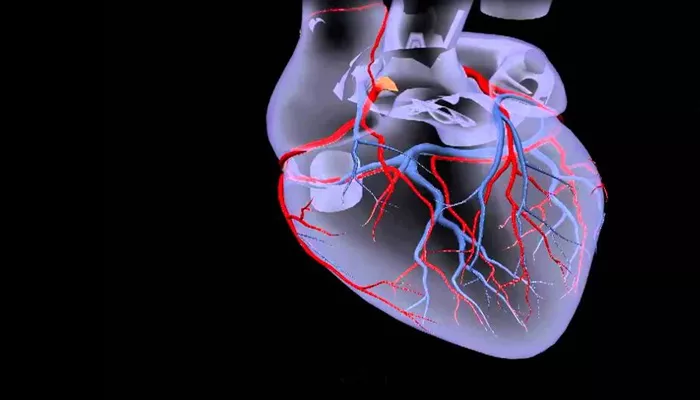Hypertension, commonly known as high blood pressure, is a pervasive health issue that affects millions of people worldwide. While it is widely recognized for its impact on cardiovascular health, its effects on other parts of the body are often underestimated. One such area of concern is the eyes. Hypertension can have profound and detrimental effects on ocular health, leading to conditions that can impair vision and, in severe cases, cause blindness. This article explores how hypertension causes eye damage, delving into the mechanisms, symptoms, and preventive measures to safeguard ocular health.
Understanding Hypertension
Hypertension is a chronic medical condition in which the blood pressure in the arteries is persistently elevated. Blood pressure is measured in millimeters of mercury (mmHg) and is expressed in two numbers: systolic pressure (the pressure when the heart beats) over diastolic pressure (the pressure when the heart rests between beats). A normal blood pressure reading is usually around 120/80 mmHg. Hypertension is diagnosed when the blood pressure consistently exceeds 140/90 mmHg.
Mechanisms of Eye Damage
1. Hypertensive Retinopathy
Hypertensive retinopathy is the most direct manifestation of hypertension’s impact on the eyes. The retina, the light-sensitive tissue at the back of the eye, relies on a network of blood vessels to function properly. Elevated blood pressure can damage these blood vessels, leading to several changes in the retina, including:
Arteriolar Narrowing: Chronic high blood pressure causes the arterioles (small arteries) in the retina to become narrowed and thickened. This restricts blood flow and can lead to ischemia (reduced blood supply).
Flame-Shaped Hemorrhages: These are small, flame-shaped areas of bleeding in the retina that occur due to the rupture of weakened blood vessels.
Cotton Wool Spots: These white, fluffy spots on the retina are caused by microinfarctions, where small areas of the retina are deprived of oxygen and nutrients.
Exudates: These are yellowish deposits of lipids and proteins that leak from damaged blood vessels into the retina.
SEE ALSO: How Does Cortisol Affect Blood Pressure?
2. Choroidopathy
Hypertensive choroidopathy is a condition where high blood pressure affects the choroid, a layer of blood vessels and connective tissue between the retina and the sclera (the white of the eye). The primary manifestations include:
Elschnig Spots: These are small, pale areas on the choroid caused by localized infarctions (tissue death due to lack of blood supply).
Serous Retinal Detachment: This occurs when fluid accumulates under the retina, causing it to detach from the underlying tissue. It can lead to severe vision impairment if not treated promptly.
3. Optic Neuropathy
Hypertension can also damage the optic nerve, which transmits visual information from the retina to the brain. Hypertensive optic neuropathy, also known as ischemic optic neuropathy, can result from reduced blood flow to the optic nerve, leading to:
Papilledema: Swelling of the optic disc, the point where the optic nerve enters the eye, often caused by increased intracranial pressure due to severe hypertension.
Optic Atrophy: This is the loss of optic nerve fibers, leading to a pale appearance of the optic disc and potential permanent vision loss.
Symptoms of Hypertensive Eye Damage
The symptoms of eye damage due to hypertension can vary depending on the severity and type of ocular condition.
Common symptoms include:
Blurred Vision: This is often one of the earliest signs of hypertensive retinopathy. It may occur intermittently or persistently.
Vision Loss: In severe cases, significant damage to the retina, choroid, or optic nerve can lead to partial or complete vision loss.
Headaches: Increased intracranial pressure and optic nerve involvement can cause headaches, particularly in cases of papilledema.
Visual Field Defects: These are areas of diminished vision within the visual field and can be a sign of optic neuropathy or retinal detachment.
Double Vision: This may occur if the optic nerve is affected.
Risk Factors
Certain factors can increase the risk of hypertension-related eye damage:
Duration of Hypertension: The longer one has high blood pressure, the greater the risk of developing eye damage.
Severity of Hypertension: Higher blood pressure levels correlate with more severe ocular complications.
Other Medical Conditions: Conditions such as diabetes, high cholesterol, and cardiovascular disease can exacerbate the effects of hypertension on the eyes.
Lifestyle Factors: Poor diet, lack of physical activity, smoking, and excessive alcohol consumption can contribute to hypertension and its complications.
Diagnosis And Monitoring
Regular eye examinations are crucial for detecting hypertension-related eye damage early. An eye doctor (ophthalmologist) can perform several tests to assess the health of the eyes:
Fundoscopy: This involves using an ophthalmoscope to examine the retina and optic disc for signs of hypertensive retinopathy or optic neuropathy.
Fluorescein Angiography: A dye is injected into the bloodstream to highlight blood vessels in the retina, allowing for detailed imaging and identification of leaks or blockages.
Optical Coherence Tomography (OCT): This imaging test provides cross-sectional images of the retina, helping to detect fluid accumulation or retinal thickening.
Visual Field Testing: This assesses the extent and location of any visual field defects.
Conclusion
Hypertension is a silent yet potent threat to ocular health, capable of causing a range of eye conditions that can lead to vision impairment or loss. Understanding the mechanisms through which high blood pressure affects the eyes, recognizing the symptoms, and taking proactive measures to control blood pressure are essential steps in preventing and managing hypertensive eye damage. Regular eye examinations and a commitment to a healthy lifestyle are crucial in preserving vision and ensuring overall well-being.

